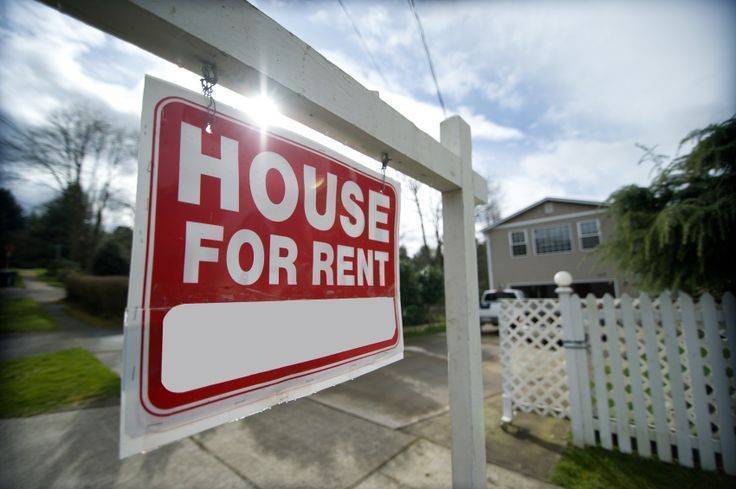Bengaluru’s real estate market continues to impress with its rapid transactions and high demand, as evidenced by a recent rental in Koramangala. A fully furnished 2BHK apartment, listed at ₹43,000 per month with a ₹2.5 lakh security deposit, was snapped up in just nine hours after being posted on X, underscoring the intense competition in the city's housing sector and importance of social media platform.
The Rapid Rental Process
The apartment, situated in the upscale locality of Koramangala, was posted by entrepreneur Leesha Agarwal, who was moving to a new location. Agarwal announced the listing on social media platform X at 12:14 PM on August 1, detailing the rental terms. The immediate interest in the property led to five prospective tenants visiting in quick succession. By 9:07 PM on the same day, Agarwal updated her post to announce that the apartment had been rented, reflecting the overwhelming response and the swift nature of the transaction.

The Power Of Social Media Platform
Social media platforms like X showcase tremendous power in real estate transactions, thanks to their wide reach and instant communication. Agarwal's post is a perfect example of how quickly properties can be rented out when shared on social media. Even without being listed on property portals, it received a great response. This real-time connection with a large audience speeds up the rental process and highlights the high demand in Bengaluru’s housing market.
The Rising Trend of High Security Deposits
The trend of high security deposits is becoming more pronounced in Bengaluru’s real estate market. Agarwal’s listing, with a security deposit amounting to nearly six months’ rent, highlights this trend. Koramangala, known for its prime location and high rental values, commands some of the highest property prices and rents in the city. The average rent for a 1BHK unit in Koramangala is approximately ₹28,000 per month, with a 5% annual increase. This escalating rental trend often leads to higher security deposits as landlords seek to mitigate financial risks.
Factors Driving High Security Deposits
Several factors contribute to the trend of high security deposits in Bengaluru:
High Demand and Competitive Market: Bengaluru’s real estate market is characterized by high demand, driven by an influx of students and young professionals. This demand allows landlords to impose higher security deposits, as tenants are willing to meet these conditions to secure desirable properties.
Risk Mitigation: High deposits serve as a financial cushion for landlords, helping them mitigate risks associated with property damage and potential loss of rental income.
Tenant Vetting: Landlords increasingly adopt rigorous tenant vetting processes, such as checking LinkedIn profiles or conducting interviews, to ensure reliable tenants. This increased scrutiny often leads to higher security deposits.
Changes in Security Deposit Practices
Despite the common practice of high security deposits, there are signs of change. In some areas, landlords are starting to accept lower deposits. For instance, in Indiranagar, deposits have decreased to around six months' rent, reflecting a shift towards more tenant-friendly practices.
Moreover, the introduction of zero-deposit rental schemes represents a significant development. Under this scheme, tenants pay a nominal one-time fee to secure a rental bond, which serves as a guarantee for landlords. This model aims to provide financial security for landlords while offering tenants a more accessible rental option.
Bengaluru's Booming Rental Market: High Yields and Rising Rents
Bengaluru is leading India's rental market with some of the highest yields in the country. According to NoBroker, rental yields in Bengaluru range between 4-5%, significantly higher than Mumbai's 3% and Delhi-NCR's 2.5%. This high yield, coupled with the city's thriving real estate market, has contributed to the prevalence of high security deposits. Unlike other major cities with high student and professional populations, where security deposits are typically around two months' rent, Bengaluru sees much higher deposits. This reflects a market where demand exceeds supply, allowing landlords to impose stricter terms.
As per Anarock research report, at the end of 2022, the average rent for a 2 BHK property in Bengaluru was Rs 22,500 in Whitefield and Rs 24,000 in Sarjapur Road. By the end of 2023, these figures had increased to Rs 30,200 in Whitefield and Rs 31,600 in Sarjapur Road. In the first quarter of 2024, rental prices surged further, with averages reaching Rs 32,500 in Whitefield and Rs 34,000 in Sarjapur Road. This represents an 8% increase in rental rates over the last quarter alone.
Bengaluru continues to lead with a rental yield of 4.45% in Q1 2024, compared to 3.6% before the Covid-19 pandemic, marking a 24% growth. The city's strong IT sector presence plays a significant role in sustaining this high demand for rental properties.
Zero-Deposit Rental Scheme For Mitigation of Rental Woes
The zero-deposit rental scheme is an emerging trend that addresses some of the challenges associated with high security deposits. By offering a rental bond instead of a large upfront deposit, this scheme provides a more affordable and accessible option for tenants. This approach could potentially lead to a broader acceptance of lower security deposits and greater flexibility in the rental market.
As Bengaluru's rental market continues to evolve, it is crucial to monitor these trends and their impact on both landlords and tenants. The shift towards zero-deposit schemes and the gradual easing of security deposit requirements could signal a more balanced approach in the future, making rental accommodation more accessible and equitable for a wider range of people.
Implications for Tenants and Landlords
The swift rental of Agarwal’s apartment, combined with the high security deposit, illustrates Bengaluru’s competitive rental market. Tenants face significant upfront costs and stringent requirements, though zero-deposit rentals offer some relief. For landlords, high security deposits act as a safeguard against risks, but the shift towards more flexible arrangements reflects a growing recognition of the need to balance risk management with tenant accessibility.
Conclusion
Bengaluru’s rental market is undergoing significant changes, characterized by rising security deposits and an increasingly competitive environment. The case of Leesha Agarwal’s rental listing and the high demand for properties in prime locations like Koramangala highlight broader trends in the city’s real estate sector. While high security deposits remain common, innovations like zero-deposit rental schemes offer potential solutions to balance the interests of landlords and tenants. As the market continues to evolve, monitoring these trends will be crucial for understanding their impact on rental affordability and tenant satisfaction.









.png)